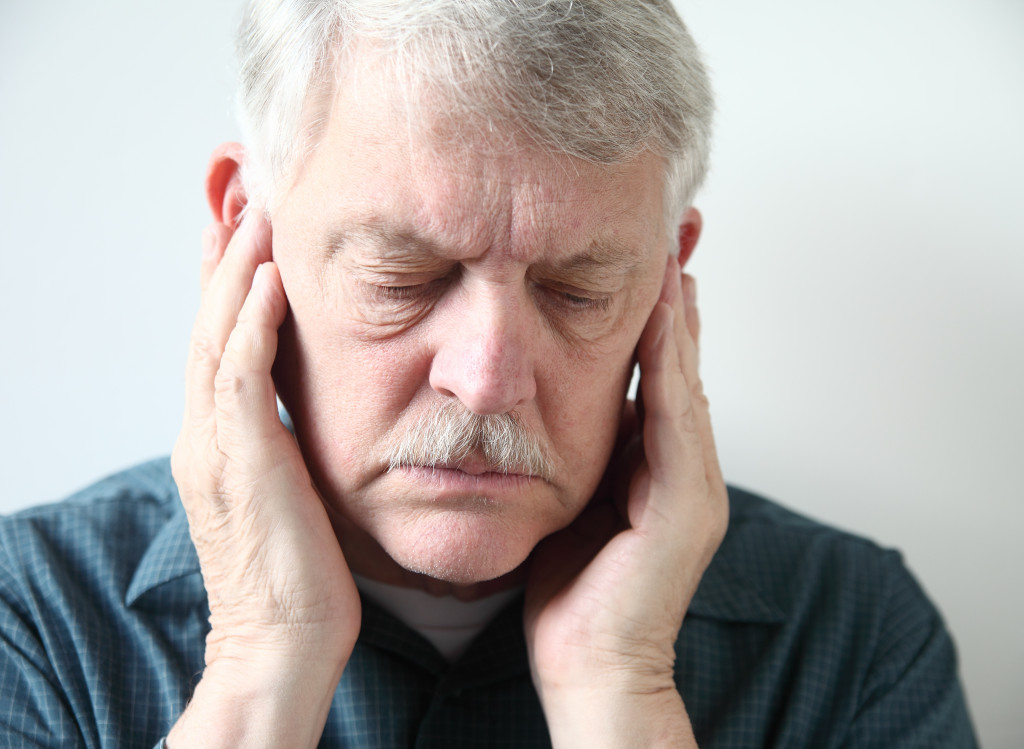Experiencing pain around your mouth is never fun. In fact, it can be quite stressful. Unfortunately, toothaches and jaw pain are more common than you may think. More than 10 million Americans live with some kind of disorder or problem with their jaw structure. So what causes these things? And more importantly, how can you get rid of them? Read on to find out.
Toothaches
There are many different things that can cause pain in your teeth. Here are some of the most common causes:
Tooth decay
Tooth decay is a common problem that occurs when bacteria build up on your teeth. When bacteria builds up on your teeth, it forms plaque, then hardening into tartar, which can eat away at your enamel and cause cavities. While this is fairly easy to keep away through proper and regular brushing and flossing, it requires professional help to treat.
If you are experiencing a toothache due to tooth decay, the best thing you can do is see your dentist as soon as possible. Decay can often be treated with a filling, a crown, fluoride treatments, a root canal, or a tooth extraction. However, if it is left untreated, it can progress to a more serious infection. Your dentist will be able to diagnose the extent of the decay and recommend the best course of treatment.
Gum Disease
This is an infection of the gums that can cause them to become red and swollen. Diseased gums often bleed easily, and it is caused by poor oral hygiene. Gingivitis and periodontitis are the two most common types of gum disease, which is experienced by roughly 40% of all adults above 30 years.
Gingivitis
This is a mild form of gum disease that is caused by plaque and bacteria build-up on the teeth. Symptoms include red, swollen, and bleeding gums. By having good oral hygiene practices, such as gurgling and flossing, you can still reverse the effects of gingivitis on your gums. Try oral care products such as mouthwash and toothpaste that specifically target gingivitis. You can also gargle saltwater to help combat this.
Periodontitis
This is a more serious form of gum disease that is caused by plaque and bacteria build-up in the gums and jawbone. Symptoms include red, swollen, gums that bleed very easily, as well as bad breath, loose teeth, and receding gums. Periodontitis can often be treated with root planing, scaling, antibiotics, and surgery, but it can also lead to tooth loss, so don’t delay visiting your dentist for this.
Abscessed Teeth
This is an infection at the root of your tooth that can cause serious pain. An abscess is basically a small pocket of pus caused by an infection Abscesses are often caused by untreated cavities or gum disease. There are many different ways to treat teeth infections, and the best way to find out what will work for you is to see your dentist. Take over-the-counter oral medicine such as ibuprofen or aspirin to help relieve pain and inflammation while you are on your way to a dentist. Additionally, rinsing your mouth with a saltwater solution can help keep the area clean and free of infection-causing bacteria.

Jaw Pain
There are many different things that can cause jaw pain. Here are some of the most common ones:
TMJ Disorders
The temporomandibular joint, or TMJ, is the joint that connects your lower jawbone to your skull. When this joint is not working properly, it can cause pain in the jaw and neck. There are many different types of TMJ disorders, and they can be caused by a number of things, including:
- Injury to the joint
- Stress
- Bad posture
- Teeth grinding
- Arthritis
When experiencing pain due to TMJ disorders, you can take medications that relieve the pain and inflammation. Over-the-counter medications such as ibuprofen and aspirin can be helpful, and your doctor may also prescribe stronger medications if needed.
Your doctor may also prescribe physical therapy to help improve the function of your TMJ joint and reduce pain. Therapists will often use massage, heat, and ice to help relieve pain and stiffness. They may also teach you exercises to do at home to help improve the health of your joint.
Orthodontic equipment, such as braces and orthodontic headger, can be used to realign the jaw and fix TMJ disorders. There are also newer types of equipment that have a smaller profile while still delivering the same kind of treatment, such as distalizers and Herbst dental appliances.
In the worst cases, surgery may be necessary to correct a TMJ disorder. Surgery can involve repairing or replacing the joint, or removing part of the jawbone.
Bruxism
Bruxism refers to clenching or grinding your teeth. This can put a lot of pressure on your teeth and jaws, and it may eventually lead to a toothache and jaw pain. Most people grind their teeth because they are stressed, caffeine intake, smoking, drugs, or misaligned jaws, so this may also be a symptom of a TMJ disorder. Try to relax and avoid smoking, drinking, or doing drugs. If you still grind your teeth, you need to have your jaw checked out.
Bruxism is often related to transferred muscular pain, in which the pain from your muscles is transferred onto your teeth whenever you put pressure or grind your teeth. Always try to loosen your jaw and move it around if you notice yourself clenching it.
Conclusion
If you’re experiencing a toothache, it’s best to see an oral health specialist, like a dentist or orthodontist. They will know what your problem is and come up with a treatment plan. In the future, we hope that you will take good care of your oral health — prevention really is better than cure!


